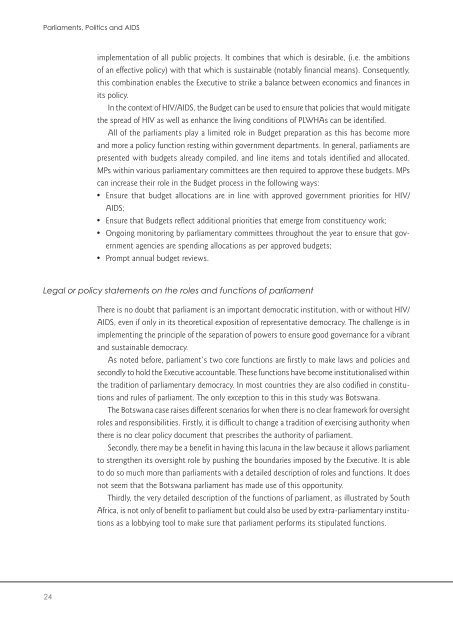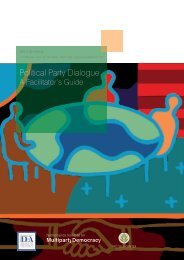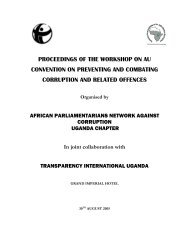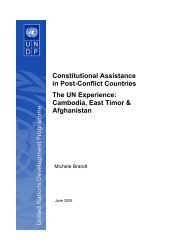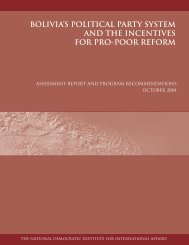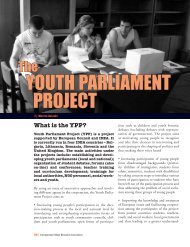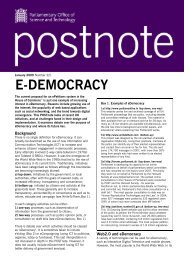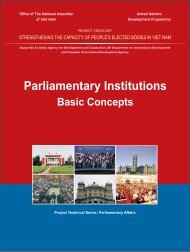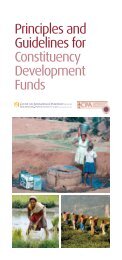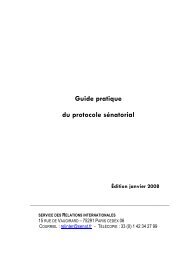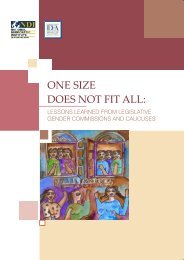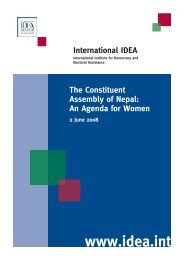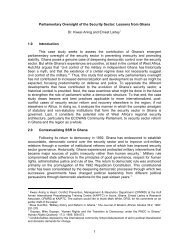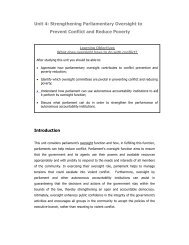Download PDF - Parliamentary Centre
Download PDF - Parliamentary Centre
Download PDF - Parliamentary Centre
- No tags were found...
You also want an ePaper? Increase the reach of your titles
YUMPU automatically turns print PDFs into web optimized ePapers that Google loves.
Parliaments, Politics and AIDSimplementation of all public projects. It combines that which is desirable, (i.e. the ambitionsof an effective policy) with that which is sustainable (notably financial means). Consequently,this combination enables the Executive to strike a balance between economics and finances inits policy.In the context of HIV/AIDS, the Budget can be used to ensure that policies that would mitigatethe spread of HIV as well as enhance the living conditions of PLWHAs can be identified.All of the parliaments play a limited role in Budget preparation as this has become moreand more a policy function resting within government departments. In general, parliaments arepresented with budgets already compiled, and line items and totals identified and allocated.MPs within various parliamentary committees are then required to approve these budgets. MPscan increase their role in the Budget process in the following ways:• Ensure that budget allocations are in line with approved government priorities for HIV/AIDS;• Ensure that Budgets reflect additional priorities that emerge from constituency work;• Ongoing monitoring by parliamentary committees throughout the year to ensure that governmentagencies are spending allocations as per approved budgets;• Prompt annual budget reviews.Legal or policy statements on the roles and functions of parliamentThere is no doubt that parliament is an important democratic institution, with or without HIV/AIDS, even if only in its theoretical exposition of representative democracy. The challenge is inimplementing the principle of the separation of powers to ensure good governance for a vibrantand sustainable democracy.As noted before, parliament’s two core functions are firstly to make laws and policies andsecondly to hold the Executive accountable. These functions have become institutionalised withinthe tradition of parliamentary democracy. In most countries they are also codified in constitutionsand rules of parliament. The only exception to this in this study was Botswana.The Botswana case raises different scenarios for when there is no clear framework for oversightroles and responsibilities. Firstly, it is difficult to change a tradition of exercising authority whenthere is no clear policy document that prescribes the authority of parliament.Secondly, there may be a benefit in having this lacuna in the law because it allows parliamentto strengthen its oversight role by pushing the boundaries imposed by the Executive. It is ableto do so much more than parliaments with a detailed description of roles and functions. It doesnot seem that the Botswana parliament has made use of this opportunity.Thirdly, the very detailed description of the functions of parliament, as illustrated by SouthAfrica, is not only of benefit to parliament but could also be used by extra-parliamentary institutionsas a lobbying tool to make sure that parliament performs its stipulated functions.24


